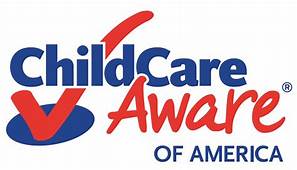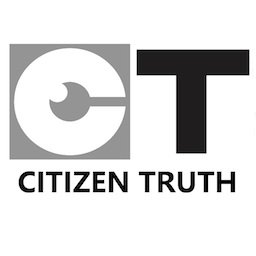 |
|
|
January 2020 Featured Agency of the Month
|
|
Crystal Stairs, Inc.
(CSI) was founded in 1980 by Dr. Karen Hill-Scott and Dr. Alice Duff, who recognized the value and need for high-quality early care and education programs for children from low-income families.
For 40 years, Crystal Stairs, Inc. has been a trusted community partner and institution. CSI is also one of the largest, private non-profit childcare and development corporations in California and the largest alternate payment provider in Los Angeles County. CSI serves over a 200 square mile area that spans some of the most concentrated low-income demographics in California by providing much-needed programs and services to children and families.
|
|
|
|
|
CAPPA Member Only Benefits
|
|
CAPPA Member Benefits now available on the Members Only website:

|
Just added to the Member's only website:
|
|
|
CAPPA's
2019-20 Board of Directors
|
|
Rick Richardson
Child Development Associates
Karen Marlatt
Valley Oak Children's Services
Beth Chiaro
Child Care Resource Center
LaVera Smith
Supportive Services Fresno
Martin Castro
Mexican American Opportunity Foundation
Jeffrey Moreira
Crystal Stairs, Inc.
Public Policy Co-Chair
Phillip Warner
Children's Council San Francisco
Tina Barna
Choices for Children
Abby Shull
YMCA Childcare Resource Service
Leslie Reece
Family Resource & Referral of San Joaquin County
Jeanne Fridolfs
Napa County Office of Education
Mike Michelon
Siskiyou Child Care Council
Marco Jimenez
Central Valley Children's Services Network
Michelle Graham
Children's Resource & Referral of Santa Barbara County
Joie Owen
Glenn County Office of Education
Denyne Micheletti Colburn
CAPPA CEO
|
|
|
ELCD/CDE, DSS & CCLD Updates
|
|
January 2, 2020
California State Preschool Program (CSPP) Free or Reduced-Price Meal Eligibility Criteria to Enroll Four-Year-Olds
December 10, 2019
November 6, 2019
FY 2019-20 RFA for CSPP Expansion Funds
November 5, 2019
FY 2019-20 RFA for CCTR Expansion Funds
October 14, 2019
15-day comment period is now closed.
September 17, 2019
September 9, 2019
Fiscal Year 2019-20 Two-Day Fiscal Training for Center-Based Contractors.
Additional information regarding location details and how to sign up for these trainings will be forthcoming
|
|
|
Is Your Organization Hiring?
Post your job announcement here for thousands to see!
There is no charge for CAPPA members.
Non-members will be charged a fee of $75.
Please
email us
your posting!
Associate Governmental Program Analyst
California Health & Human Services Agency
4Cs of Alameda County
Colusa County Office of Education
Solano Family and Children's Services
International Institute Los Angeles
Children's Council San Francisco
|
The CAPPA Board has made it a priority to support our field with a coordinated calendar to note upcoming statewide conferences, federal conferences of relevance, CDE and DSS stakeholder meetings and legislative and budget deadlines and hearings.
NOTE: If you would like to share your newsletter or items of interest with our field via the Monday morning e-Newsletter, then please
email us
a link. Please make sure that you have a link included to an online version or viewing.
|
|
|
Become a Monday
Morning
Update Partner!
|
|

Our Monday Morning Update supports our Early Learning & Child Care field with timely information about what is going on in California and nationally; as well as dates to be aware and upcoming events.
Our weekly (50 times per year) Monday morning distribution is to more than 4,000 federal and state local agencies, resource and referrals, contractors, legislators and their staffs', centers, parents, providers, state departments and advocates.
To help support the continuation of this resource and or advertise in the Monday Morning Update, click
HERE.
You can also make a donation to CAPPA and CAPPA Children's Foundation
The Children's Foundation is a non-profit organization (501(c)3), Taxpayer Identification Number is
03-0521444. Your generous donation is tax deductible.
|
- California, 13 other states sue to stop Trump's food stamp cuts
- Report: Children, teachers, parents benefit from early childcare and education system
- Low-income drivers in California could see traffic fines cut in half
- A legal mandate to house the homeless?
- Related California Builds Affordable Housing Alongside Market-Rate Units
- Housing: California is moving in right direction, but must go faster
- Next stop for free college: Cal State University?
- A Japanese minister is taking paternity leave. That's rare, but in most countries it isn't even an option.
- 2020 Democrats talk foreign policy, child care, electability in Iowa debate
- San Francisco district adopts teacher housing plan
- UC Berkeley Ordered to Repay Millions to Teaching Assistants
- Extended Day Child Care Kindergarten Registration in Dublin 2020
- Editorial: Gov. Newsom has a long spending list. Will California's economy get him through it?
- The healthcare issue that Democratic presidential candidates are missing
- Debt Drama Pits California Housing Crisis Against Train to Las Vegas
- California franchisees demand clarification bill after AB5 brings 'cloud of uncertainty'
- Plans to move California's homeless population into centralized facilities gain steam
- What Would It Take to End Homelessness?
- Santa Clara County considers $1,000 monthly payment to youth transitioning out of foster care
- Newsom Budget Calls for New Early Childhood Department, Boosts Funds for Housing, Mental Health and Foster Care Reform
|
|
 |
|
 |

Child Care & End Child Poverty in CA Advocacy Day
January 22, 2020
9:30am-4:00pm
California Endowment Building & State Capitol
On January 22, 2020, over 50 organizations will be coming together at the State Capitol to lift up the issues impacting child care and ending child poverty in California, during the "Child Care and End Child Poverty in CA Advocacy Day". This is a day that we will link arms, in a shared voice to put focus on the needs of California's poorest families and children; needs that when addressed lift families out of poverty. The messages of the day will be to show our appreciation to legislators for the funding and supports secured in 2019, but also to provide the data of the existing and growing unmet need that still exists. This year's event will be bigger than ever before!
There will be a press conference at 10:00am under a tent on the West Steps of the State Capitol. This will be an opportunity to hear from legislators representing the Legislative Women's Caucus and leadership from both the Assembly and Senate. Also on this day, over 75 meetings have been confirmed with individual Assembly and Senate members wherein attendees will be provided the opportunity for more one-on-one conversations. Lunch will be provided under the tent on the Capitol grounds supplemented with a meet and greet opportunity extended to legislators and staff to join us.
Simultaneously, over at the CA Endowment Building, there will be a Budget Training, where attendees will hear from experts about what Governor Newsom has proposed in his January budget.
We then will have time to ask questions and discuss our collective strategy for meeting with legislators in the afternoon. The legislative meeting times will be set up and you simply need to share with us who you would like to meet with, i.e., your elected representatives. It is encouraged that if you have district specific information relevant to a specific legislator, bring it. After this session at the Endowment, we will walk over to the Capitol for legislative visits.
Planned Schedule of Events
Staff will be scheduling the legislative visits. You will receive a schedule, room assignments, and legislative advocacy packet when you check in.
**For those participating in Press Conference and Legislative Visits only:**
Beginning at 8:30am: Check-in under the tent on the West Steps of the Capitol (10th St. and Capitol Mall) for materials and visit schedules
9:30am-4:00pm: Legislative Visits
10:00am: Press Conference at the West Steps of the Capitol under the tent.
Legislators participating
- Sen. Maria Elena Durazo
- Sen. Lena Gonzalez
- Sen. Connie Leyva
- Sen. Richard Roth
- Sen. Nancy Skinner
- Sen. Scott Weiner
- Asm. Cecilia Aguiar-Curry
- Asm. Joaquin Arambula
- Asm. Rob Bonta
- Asm. Autumn Burke
- Asm. Kansen Chu
- Asm. Eloise Gómez Reyes
- Asm. Ash Kalra
- Asm. Marc Levine
- Asm. Devon Mathis
- Asm. Luz Rivas
- Asm. Blanca E. Rubio
- Asm. Sharon Quirk-Silva
- Asm. Miguel Santiago
- Asm. Buffy Wicks
- Conway Collis from GRACE & End Child Poverty in CA
- Ted Lempert from Children Now
- Shanti Prasad, Alameda County Community Food Bank
- Parent Voices Leader June Kealoha-Hall
11:30am-1:00pm: Lunch will be available for those registered (West Steps of the Capitol under the tent)
**For those attending the Budget Training:**
9:30am:
Check in at the California Endowment- 1414 K Street, Suite 500, Sacramento, CA 95814
9:45am-10:00am: Welcome and opening remarks
10:00am-11:30am:
Overview of the Governor's Proposed 2020/21 Budget; What has the Governor proposed and where are our opportunities? Facilitiated by Linda Asato,
California Child Care Resource & Referral Network
- Kristin Schumacher, California Budget and Policy Center
- Sara Cortez, Legislative Analyst's Office
- Sarah Burtner, Department of Finance
- Christian Griffith, Assembly Budget Committee
- Stephen Propheter, California Department of Education, Early Learning and Care Division
11:30am-12:00pm:
Legislative "Prep-talk" and lunch
- Facilitated by Jennifer Greppi, Parent Voices
This presentation will include an orientation about the legislative process and how to conduct visits with your representatives.
- What is advocacy and why is it important
- Finding your legislators
- How to talk to legislators
- How to share your story in an impactful way
12:15pm: Walk over to the Capitol for legislative visits
1:00pm-4:00pm: Legislative Visits
|
|
|
2020-21 California State Budget
|
|
UPCOMING BUDGET HEARINGS
- ASM Budget - January 22, 2020 @ 1:30 pm Click here to listen
- SEN Budget & Fiscal Review - January 23, 2020 @ 10:00 am - Overview of the Governor's 2020-21 Proposed Budget
NOTE: All 2020-21 Budget relative hearings, reports and materials will be
hosted here.
BELOW IS A REPRINT FROM LAST WEEK: 2020-21 Proposed January Budget Released
On Friday, Governor Newsom released his $222.2 billion 2020-21 Budget Proposal. This is 11th year of recovery since the recession or as investors have noted "economic expansion." General Fund (GF) revenues are up over $5.8 billion for allocation to new investments and reserves (NOTE: LAO projected a nearly $7 billion surplus in November). The projected reserve amount at the end of the Fiscal Year (FY) is $21 billion. In the 2019-20 budget a majority of funding was captured as one-time and not ongoing. This appears to be the case too for the 2020-21 budget.
Looking at this proposal from the lens of supporting a family-centered and child-centered agenda, an agenda where families and children living in poverty and disconnected from the needed supports to lift them up are addressed, this is a welcoming start. A few highlights from the 2020-21 proposal:
Child Care & Early Learning
Creates a new Department of Early Childhood Development at the Health and Human Services Agency ($8.5 million)
Funds $127 million for 10,000 additional full day/full year preschool slots
Provides $10.3 million from Cannabis Fund for 621 General Child Care slots.
Provides $10 million one-time GF for the development of an adverse childhood experiences cross-sector training program.
Includes provisional language to allow unspent kindergarten facility funding form 2019-20 to be used by local districts to expand preschool in 2020-21. It is expected that about $300 million of last year's $400 million appropriation is still available for this purpose.
Provides $75 million to continue funding for inclusive early care and education program expansion.
Other
Doubles the Earned Income Tax Credit (EITC) by investing $1 billion in a new expanded EITC (up from $400 million). The expansion includes help for low-income families with young children by providing an additional $1,000 annually to address the costs of raising young children. This expansion will provide one million more economically distressed households with financial support to help with the costs of food, rent, and child care-bringing the total number of eligible households to three million.
Creates the California Access to Housing and Services Fund in the Department of Social Services (DSS) to (a) pay rent for individuals facing homelessness, (b) support regions to bring on more dwelling units, and (c) to help stabilize board and care facilities/homes.
Reflects a 3.1-percent increase to CalWORKs Maximum Aid Payment levels, effective October 1, 2020, which is estimated to cost $73.6 million in 2020-21 and $98.1 million in 2021-22.
Includes $20 million for existing Emergency Food Assistance Programs providers and food banks
Authorizes $500 million for the state's housing tax credit program
Caps annual renter housing increases allowing for protections that are discriminatory and retaliatory without cause
Creates competition in the generic drug market aimed at driving costs down for all.
Expands full-scope Medi-Cal coverage to low-income undocumented California's aged 65 and above
Builds on Medi-Cal Healthier California for All with structural changes and wraparound services including housing and social services
Safe Drinking Water - $360 million to provide grants and loans to disadvantaged communities to improve access to safe drinking water
The release of the 2020-21 proposal is a good start for conversations, but for struggling working families and children that need access to child care in order to lift themselves up from poverty and break cycle of poverty, there are better more strategic investments that must be made. While our economy has grown and strengthened, over 2.2 million income eligible children have been left behind with no access to any care. Of the over 2.2 million in need, there are fewer than 59,000 child care slots for our poorest of working families to access for their babies while they try to secure and maintain employment.
Poverty in California is not a linear issue. To make meaningful investments in the lives of these families and children, we need to invest in the core infrastructures of child care, housing, food, transportation and health care that intertwine to lift families up.
Finally, creating a department that focuses on early childhood is visionary. However, to truly be impactful and meaningful then it too must also take oversight of all of the programs that interface and impact the lives of the most vulnerable children. If the focus of the new department is solely to look at the "early care and educational" aspect of a child's life, then keep all of the programs under the California Department of Education. That way there is some coordination of the child care and early learning programs with the preschool, transitional kindergarten and our K-12 system.
|
Legislators have begun to introduce legislation for the final year of this 2019-2020 legislative session. Upcoming dates to be aware:
- Jan. 31 Last day for each house to pass bills introduced in that house in the odd- numbered year
- Feb. 21 Last day for bills to be introduced
ASSEMBLY BILLS:
SENATE BILLS:
- SB 795 (Beall) Affordable Housing and Community Development Investment Program.
In the
CAPPA Monday Morning Update, will be a tracking of legislation relevant to our field. We too will also host all of the legislation for this session here along with factsheets and sample letters. If there is a piece of legislation that you would like to have noted for our field, please
email.
Dates and committee hearings to be aware:
- Wednesday, January 22: SEN Budget Sub-Committee on Health & Human Services @ 9am - Rm 4203
- Informational hearing - Update On Rate Study and Reform In Developmental Services Systems
- Thursday, January 23: SEN Budget & Fiscal Review (Mitchell, Chair) 10am - Rm 4203
- Informational Hearing - Overview of the Governor's 2020-21 Proposed Budget
- Wednesday, January 29: Joint Legislative Audit (Salas, Chair) @ 10am - Rm 444
- Oversight Hearing - K-12 Local Control Funding: The State's Approach Has Not Ensured That Significant Funding Is Benefiting Students as Intended to Close Achievement Gaps (Report Number 2019-101)
Click here to see calendar of field events/interests and legislative hearings and deadlines. If you would like something added to the field calendar,
click here and submit details.
|
|
|
2019-20 Federal Budget Update
|
|

Congress and the White House have officially approved federal funding for the remainder of FY2020, reaching a bipartisan agreement that provides more than $1 billion in increased funding for federal early childhood programs, including:
- $5.826 billion for the Child Care and Development Block Grant (CCDBG) - a $550 million increase from FY2019;
- $10.613 billion for Head Start/Early Head Start - a $550 million increase from FY2019; and
- $275 million for Preschool Development Grants - a $25 million increase from FY2019.
In response, Child Care Aware® of America (CCAoA) Executive Director Dr. Lynette M. Fraga released the following statement:
"Children and families will benefit from more than $1 billion in new federal funding in FY2020 that supports safe, high-quality child care and early learning programs. This investment represents a step forward toward the much larger infusion of support the child care system
needs. Child Care Aware® of America applauds Congress and the White House for continuing to show their support for federal child care and early learning programs.
|
|
|
Profiled Legislator of the Week!
|
|
Assemblymember Miguel SANTIAGO
College students get 2 years of free tuition at Cal State universities if AB 1862 passes
College students hope a new bill introduced Wednesday will pave a pathway to an affordable bachelor's degree.
Assembly Member Miguel Santiago and members of the Los Angeles Community College District Board celebrated the introduction of Assembly Bill 1862.
If AB 1862 becomes law, it will provide two years of tuition-free education at any California State university.
"Last night there was a presidential debate. Everyone talked about making community colleges free. Everybody talked about making a debt-free education. We're going to do it here in California before anybody else does it," said Santiago who represents District 53 in Los Angeles.
|
|
|
CDE Information & Updates
|
|

Information to Agencies Regarding the Passing of Assembly Bill 5
Attention: ELCD Contracting Agencies
The ELCD has received concerns regarding the recent passage of Assembly Bill (AB) 5, which codifies the legal test to be used to determine which professions in California can be designated as employees versus independent contractors for purposes of the Labor Code, the Unemployment Insurance Code, and the IWC wage orders, and how this new law will impact agencies working with subsidized childcare programs.
It is the CDE's position that licensed family child care providers and license-exempt providers working in subsidized childcare programs are not employees of the state or any agency that provides reimbursement to the provider, whether reimbursement is through a family child care education network or an alternative payment program, and AB 5 did not change that.
The recent passage of AB 378, which established collective bargaining rights for family child care providers, amended the Education Code (EC) to include language that addresses this concern. The EC Section 8432.5 specifically provides:
EC
8432.5
Family childcare providers are not public employees, and this article does not create an employer-employee relationship between family childcare providers and the state, any agency or department of the state, any political subdivision of the state, or a contractor or subcontractor administering a state-funded early care and education program, for any purpose, including, but not limited to, eligibility for health or retirement benefits, workers' compensation, unemployment insurance, liability under the Labor Code or state wage orders, or vicarious liability in tort. This article does not alter the status of a family childcare provider as a business owner, an employee of a family, or a contractor.
If you have questions regarding the information in this email, please contact your assigned regional Consultant on the ELCD Consultants Regional Assignments web page at
https://www.cde.ca.gov/sp/cd/ci/assignments.asp
or by phone at 916-322-6233.
|
|
|
2020 Election Information
|
|
Information on Upcoming Initiatives
March 3, 2020 Statewide Ballot Measures
November 3, 2020 Statewide Ballot Measures
- 1856. (18-0009) - REFERENDUM TO OVERTURN A 2018 LAW THAT REPLACED MONEY BAIL SYSTEM WITH A SYSTEM BASED ON PUBLIC SAFETY RISK.
November 2020 Eligible Statewide Ballot Measures
- 1840. (17-0044, Amdt.#1) - Restricts Parole for Non-Violent Offenders. Authorizes Felony Sentences for Certain Offenses Currently Treated Only as Misdemeanors. Initiative Statute.)
- 1851. (17-0055, Amdt.#1) - Requires Certain Commercial and Industrial Real Property to be Taxed Based on Fair-Market Value. Dedicates Portion of Any Increased Revenue to Education and Local Services. Initiative Constitutional Amendment.
Upcoming Senate, Assembly, and Presidential Elections:
|

The races to watch: California Assembly primary
The most competitive races in the Assembly are evenly split three ways: swing seats Democrats recently acquired and must defend, toss-up seats the GOP will try to hang onto, and open seats in partisan strongholds where members of the same party will fight it out. One Riverside-adjacent district is a test case for independents.
Though Democrats expect to retain "
gigamajorities" in both chambers, each party contains multitudes. Key races are intra-party battles - pitting far-left candidates against liberals, arch-conservatives against moderates, establishment faves versus iconoclastic outsiders. The outcomes will trace the ideological trajectory of California politics, and determine what policy is possible.
In each of the key races below, a chart shows how the district is currently being represented along a left-to-right ideological spectrum.
CalMatters created these by gathering each incumbent's "yes" and "no" or skipped votes from the 2019 Assembly session and feeding that data through software. The software - created by political scientists from UCLA, the University of Southern California, Rice University and the University of Georgia - groups lawmakers based on how frequently they vote with one another.
Election Day is March 3. And then what? Under California's top-two primary system, the first and second place winners, regardless of party, will move on to the general election ballot in November.
|

Local coalition aims to tackle child poverty
The newly formed group hopes to coordinate countywide efforts on housing, food insecurity and other issues related to childhood poverty
A broad group of San Diego County youth advocates, community leaders and agencies are uniting in a new coalition that aims to reduce child poverty in the area by 50 percent over the next decade.
Data from the U.S. Census Bureau shows 40 percent of the county's children age 12 and younger lived below 200 percent of the
federal poverty level in 2017. Hogeboom said the coalition is using 200 percent as a poverty indicator because the cost of the high cost of living in San Diego.
The data means more than 190,000 children had unequal access to healthy food, stable housing, reliable healthcare, quality childcare and early education.
|

No More School Facility Bond Debt in California
Thanks to California's new education funding law that intentionally underfunds California public education, the State is now $1.3 trillion in debt (mostly school debt).
California has $337 billion in local school facility bond deb
t. This does not include state school facility bond debt, and federal CREB bond debt used to pay for Solar Panels and other Green Energy Projects.
The Federal government should pull all Federal education dollars from the State of California until the State meets its constitutional obligations to California residents. Under the State's new education funding law, per pupil funding is limited to 2007-08 levels plus inflation. This means that the Capistrano Unified School District's per pupil funding will remain at or below $10,000 per pupil into the foreseeable future.
|

Child Care Is Expensive. So Is Not Fixing Its Problems.
America's child care system costs the country hundreds of billions of dollars every year, according to a
new report.
But Americans don't realize it, the report says, because a big chunk of those costs come in the form of lost wages and opportunities for working parents and child care providers - and shoddy care for the kids.
The topic even came up in Tuesday night's
Democratic presidential debate.
But the prospects for actually enacting a major new child care initiative in the next few years seem mixed at best.
|

Ocasio-Cortez Bill Would Drastically Raise Poverty Line for Federal Income Threshold
A new bill called
The Recognizing Poverty Act introduced by Rep. Alexandria Ocasio-Cortez, D-N.Y., last November could result in tripling the guidelines for the federal poverty income level and open up taxpayer-funded benefits to scores of new citizens. If signed into law, the bill would direct federal agencies to reconsider the federal poverty guidelines and introduce new metrics to be taken into calculation for determining the federal poverty level.
Presently, the federal poverty level is set at $12,490 for households of one and $16,910 for a two-person household, rising with each additional member. The guidelines can affect a family's qualification for food stamps and other programs such as housing aid and healthcare. Families with school-aged children might also qualify for free or reduced-price school lunches based on the poverty line.
|

This Expense Costs Americans $9,006 a Year
Holding down a job is challenging in its own right, but when you have children, it can suddenly become a more daunting prospect -- especially when you consider the cost of child care these days. The average American spends an estimated $9,006 on child care each year,
says GOBankingRates. Meanwhile, the average U.S. salary is $51,960,
says The Ascent,
a division of The Motley Fool, based on data from the Bureau of Labor Statistics. As such, the typical worker with kids is spending over 17% of their income just to maintain the ability to bring home a paycheck.
If you're struggling to keep up with the cost of child care, you're clearly not alone.
|

L.A. Board of Supervisor Candidates on the Issues: Race and Foster Care
The Chronicle of Social Change is publishing a series of
posts from leading candidates running to succeed Mark Ridley-Thomas on the Los Angeles County Board of Supervisors.
Ridley-Thomas is stepping down because of term limits, and a several candidates is running to take his place on the board, representing more than two million residents across parts of South, Central and West L.A., as well as several other communities in L.A. County.
On March 3, voters will go to the polls to elect his successor, who will help oversee an annual budget of $33 billion.We asked several top candidates to share their ideas on the county's critical safety-net challenges, including child welfare, juvenile justice, homelessness and affordable housing. To hear more about these issues, join us at a
nonpartisan candidates forum on January 31 at Los Angeles Trade Technical College, hosted in partnership with Southern California Grantmakers and United Way of Greater Los Angeles.
|

Stockton homeless advocates not optimistic about California's task force proposed mandate
On Monday, The Governor's Council of Regional Homeless Advisors unveiled a proposal in Sacramento to create a "legally enforceable, results-based, accountability mandate" that would require by law that cities and counties provide resources and remove barriers to create interim and permanent housing.
Bill Mendelson, the Executive Director of the Central Valley Low Income Housing Corporation in Stockton, said he does not believe the proposal is realistic. Mendelson, who has 30 years of experience helping the state's homeless residents, questions how will all the resources and housing will be paid for.
"Here in San Joaquin County, we are talking about a total of over 2,500 people who are homeless, both sheltered and unsheltered," says Bill Mendelson, Executive Director of the Central Valley Low Income Housing Corporation in Stockton.
"At just building 1,000 units, that would mean $2 billion for the County of San Joaquin and the cities," Mendelson said, adding that the area has more than 2,500 homeless residents. "Frankly, I don't see where local government is going to be able to come up with those kinds of dollars."
|

5 Things To Know As California Starts Screening Children For Toxic Stress
California now will pay doctors to screen patients for traumatic events known as adverse childhood experiences, or ACEs, if the patient is covered by Medi-Cal - the state's version of Medicaid for low-income families.
The screening program is rooted in
decades of research that suggests children who endure sustained stress in their day-to-day lives undergo biochemical changes to their brains and bodies that can dramatically increase their risk of developing serious health problems, including heart disease, asthma, depression and cancer.
|
|
|
 |